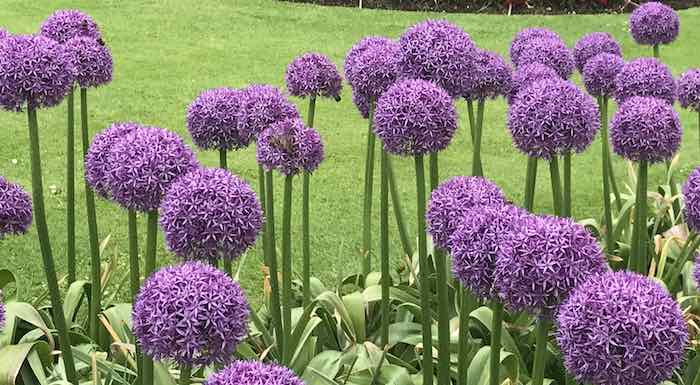Top Tips on How to Keep Safe While Gardening

Doing up your garden can be a hugely enjoyable and beneficial experience. As well as being a productive activity in transforming an important part of your home, it is also a relaxing hobby. Gardening has shown to offer several benefits to our physical and mental wellbeing. The advantages include burning calories, relieving stress, lowering blood pressure, and more. If you are planning to grow your own fruit and vegetables, then it can even support you in eating healthy and saving money. Not to mention that a garden is often a person’s pride and joy. By decorating your garden, you create a plot of land that can be admired. Above all else, gardening leads to a happier home!
While the benefits of gardening are clear to see, there are some hazards to be made aware of. Intelligent Scaffolding is a scaffolding company in Liverpool that specialises in a range of services, including construction scaffolding. Given the health and safety risks of working with scaffolding, Intelligent is experienced in taking measures to keep people safe. They have provided us with some tips on gardening safety, including the common risks and how you can take steps to stay safe.
What Are the Risks With Gardening?
There is a wide array of risks that you may encounter when working on the garden, and for the scope of this article, we will touch on just some of the most common hazards. First of all, when working with plants and soil, there is the risk that you may come into contact with dangerous bacteria. One example is tetanus bacteria which, after entering the body via an open wound, can cause health problems like lockjaw and muscle spasms. Another possible bacteria is legionella which can be found in water droplets and causes respiratory disease. You may also inhale airborne micro-organisms which can be especially dangerous to people with pre-existing conditions like asthma or allergies.
Another risk to be aware of is cuts and scrapes which can be caused by thorny plants and sharp tools. Cutting yourself can be painful and even more serious if it gets infected or interacts with a dangerous bacteria. You should also take into account poisonous plants which if touched or ingested can cause problems like breathing problems, skin blistering, burns, and rashes. The outdoors is full of bugs and insects which can carry diseases, leading to further risks should you get bit. For instance, ticks can infect you with Lyme disease, a bacterial infection that causes a rash and flu-like symptoms.
Gardening typically involves the use of hazardous chemicals such as pesticides and fertilizers, which can be harmful if not handled carefully. You will also likely use dangerous equipment such as lawn mowers. Powered equipment is especially dangerous as it can act unexpected if used incorrectly. All of these risks are hazardous to children and animals in particular, as are pools and ponds.
If it is a hot afternoon, then you run the risk of becoming dehydrated, lethargic and suffering with heat stroke. Another threat is noise pollution when using loud equipment, potentially harming the hearing of yourself and neighbours. Other risks worth mentioning include working at height, tripping over objects, or stepping on sharp equipment such as a rake.
How You Can Stay Safe
Don’t let the above risks put you off gardening! While the health hazards are important to remember, the benefits of looking after your garden far outweigh the negatives. There are several procedures you can follow to ensure the safety of yourself and others.
First of all, when handling sharp tools and dangerous equipment, make sure that you take extra care. It’s highly recommended that you wear protective clothing at all times. In particular, when handling thorny plants, sharp materials, compost, soil, and chemicals, make sure that you wear padded gloves. To avoid carrying bugs into your home or infecting your skin, make sure that your whole body is covered. Before entering the house, perform a through check for bugs and put aside any exposed clothing to be washed. Insect repellent can be highly useful for preventing the risk of insects coming near you. If you haven’t already, ensure that your tetanus vaccine is up-to-date. After gardening, always remember to wash your hands thoroughly, especially before drinking or eating.
As overheating is a common problem, it’s essential that you take regular breaks from gardening. You should also apply sunscreen, drink liquid containing electrolytes, stay in the shade as much as possible, and wear a hat or cap to shield yourself from the sun. When working with loud machinery, wear ear protection to dampen the impact on your ear drums. Avoid trips and falls by keeping the area free of equipment and always unplug equipment when not in use, especially when cleaning lawn mowers or trimmers.
If you have pets or children, monitor them carefully and ensure that any chemicals or poisonous plants are out of reach. Ideally, you shouldn’t carry out dangerous gardening in the presence of animals or kids. If your work involves water features, build a perimeter around the area to prevent people from falling in. You should also consider ways to keep the surrounding area free of slippery hazards. When working at height, it’s recommended that you use a suitable ladder or scaffolding system for the job at hand. Remember to be extra careful to avoid falling or dropping something from above.



